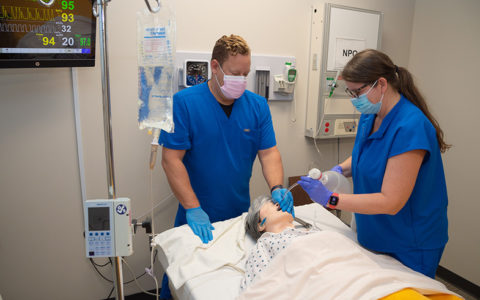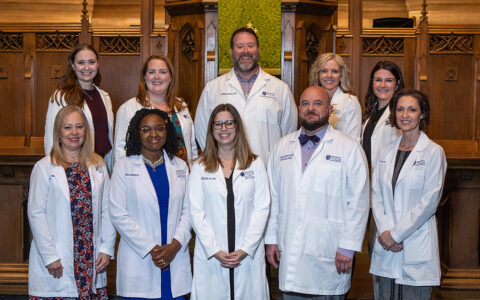Combine critical thinking with clinical training to master the skills that can change the lives of our communities.
For more than 40 years, our school has committed to teaching you the best practices that advance the art and science of nursing. Our pre-licensure program combines a strong educational core that fosters critical thinking with clinical training that incorporates the latest technology and protocols.
Offering individualized mentorship and experiential activities, we prepare you to pass the nursing licensure exam (NCLEX) and join a thriving community of healthcare providers. Besides the regular, you can opt for a well-rounded online RN to Bachelor of Science in Nursing (RN-BSN) program designed for RNs who want to take the next step in their career and fast-track the path to nursing leadership.













